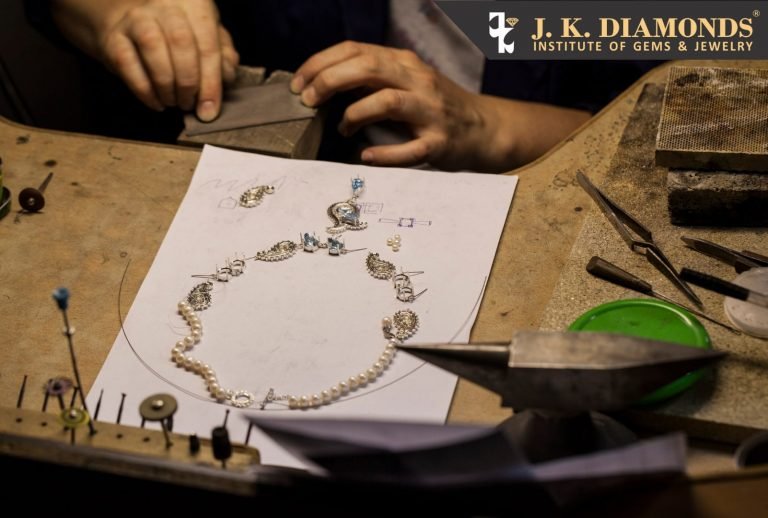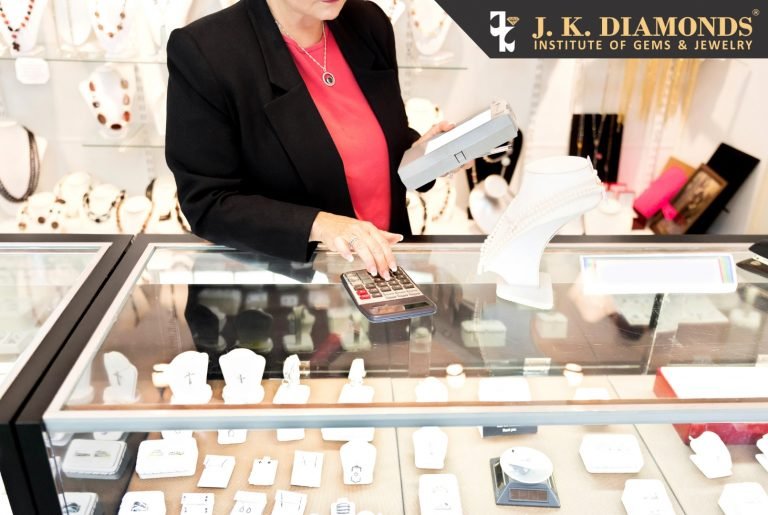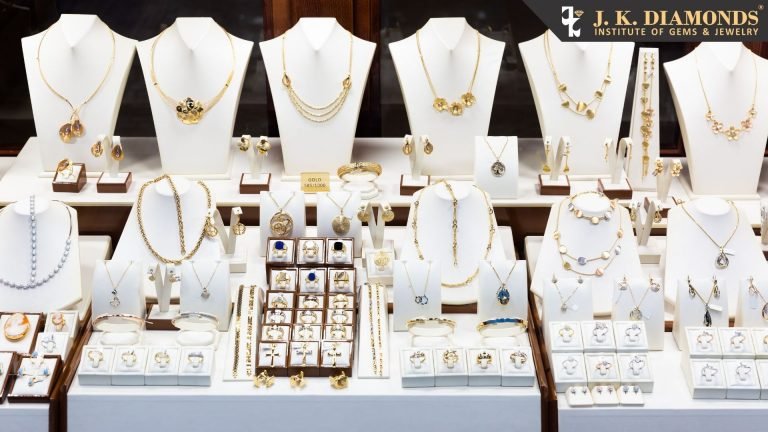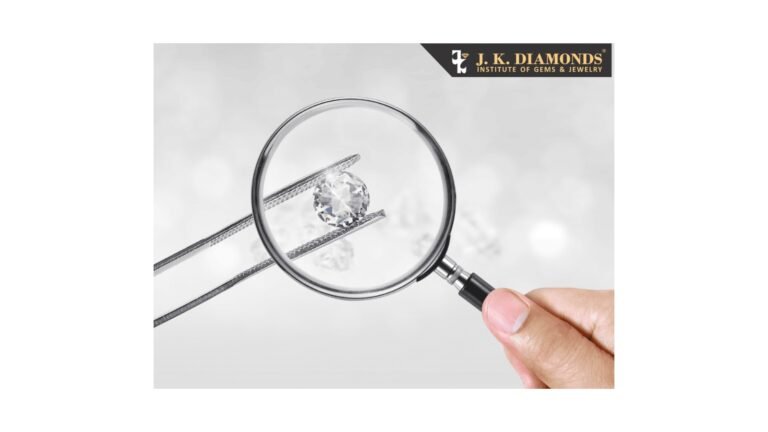Reasons why jewelry manufacturers seek to diversify
Great businessmen will agree that diversification is important for attracting a wider customer base and ensuring the ultimate growth of any business. Several manufacturers and wholesalers in the gems and jewellery industry are seeking opportunities to diversify their business. It reduces risks by allocating distribution across various channels and maximises returns by catering to a newer audience.
Well, diversification is not a cake walk. Manufacturers undertake huge risks and expenses in their effort to reach and provide to a wider audience. Naturally, jewelry manufacturers and wholesalers resort to selling directly to customers as an additional way of generating revenue. Diversification need not be expansion of business in terms of distribution channels only. Jewelry manufacturers expand their business by bringing in newer designs, introducing revolutionary technologies to promote and sell their products, employ unique marketing strategies, etc.
In this article, we address the reason why manufacturers and wholesalers diversify to sell directly to the customers and how doing so hampers the relationship between manufacturers and retailers/dealers. Moreover, while addressing the issues, let’s discuss a few solutions or approaches to minimize the risk of hampering the manufacturers-retailer relationship.

Digitalization paving the way for diversification
With the advent of digitalization, reaching out to a whole new audience is not just convenient, it is effective. Geographical and cultural boundaries are erased by the ease of communication offered by social media channels. Most businesses use digital technologies to establish a direct relationship with their customers. Jewellery manufacturers grab audiences attention using marketing and distribution strategies that enable them to circumvent distributors or retailers and build a direct-to-customer relationship. The direct bond enhances efficiency in sales and ensures overall profitability. Companies can generate solid and powerful feedback and unlock an entirely new business model.
However, an effort towards expansion and growth of business can also risk alienating the longstanding partners, i.e retailers or distributors who are responsible for the core business.

Disturbance in the manufacturer-retailer relationships:
Although jewelry manufacturers move towards building direct-to-consumer relationships as a genuine effort towards the growth of business, the move threatens the very livelihood of retailers and distributors. They begin to view manufacturers as competitors who may creep into their business and cause them to lose personal customers in the market. With the fear of losing business and ultimately revenue, retailers and distributors begin to push away from dealing with the particular jewelry manufacturer. They fear that the designs that they keep in stock at their jewelry store would also be available elsewhere. Hence, they seek to work with alternative manufacturers. Thus, choosing the Direct-to-Consumer approach is most likely to hamper the relationship between B2B businesses.

How can manufacturers ensure healthy relationships with retailers/distributors while building a Direct-to-Consumer relationship?
Have a strong digital presence instead of an offline retail store
As a manufacturer, you are expected to have cordial relationships with distributors and retailers. Both manufacturers and retailers work towards a common goal of selling and making maximum profits. Well, in this scenario, when a manufacturer decides to establish a brick-and-mortar store that sells directly to the consumer- the manufacturer becomes a competitor. A competitor can never act as a partner. Retailers and distributors lose trust in the manufacturer and will never agree to conduct business with them. Therefore, manufacturers who wish to diversify must avoid establishing a retail store that hampers the business of other retailers.
Instead, manufacturers can still choose to grow their business on online platforms. The internet has opened up wider opportunities for ecommerce. Jewelry manufacturers can establish an ecommerce store and employ ultimate digital marketing strategies to generate maximum sales. At JK Diamonds Institute of Gems & Jewelry, we believe in empowering jewelry enthusiasts to start and grow their business online.
This approach will save manufacturers from ruining their relationship with retailers, built over the years of dealerships. At the same time, the problem of hampering relationships will not prove to be a hindrance to the business’ growth, diversification and profitability.

Venture into regions where the retailers do not have a presence
Earlier, businesses were bound by geographical restrictions that did not allow expansion in specific regions. However, most parts of the world have embraced globalization in the present scenario. Moreover, the advantages of using online mediums for business expansion are known to many.
Jewelry manufacturers have great opportunities lying in regions that aren’t preoccupied by retailers and distributors. Research into geographic locations and its markets will give the manufacturer a fair idea of trade in that location. Expanding business into these regions will help manufacturers generate additional revenue while maintaining cordial relationships with existing retailers and distributors.
Build a brand
Building a brand has way more advantages than this one. But when it comes to diversification without hampering manufacturer-retailer relationships, building a brand presence will help you in wonderful ways.
For instance, the brand Forevermark by De Beers, sellers of the finest diamond jewelry, worked on marketing the brand so well that it gained massive popularity among the consumers. People could recall the name “Forevermark” when they visited the retailers. Forevermark is sold online via e-commerce and they have also established a relationship with multiple retail partners. Branding helps in leveraging the business. Retailers become compelled to sell their products when the customer demand for the brand is high. Irrespective of whether the brand sells directly to the customers or not, retailers will agree to deal with them if there is a demand for the brand in the market.
A separate brand
A manufacturer may also establish a whole new brand or identity for the market. They can launch their retail presence using this new identity. As a result, the manufacturer will not seem like a direct threat or competitor to the retailers. This business model needs to run independently. The manufacturer will then treat this new brand as a client and not a sister concern. For the success of this idea, execution and planning remains critical.

Conclusion,
Thus, diversification of business and establishment of a Direct-to-Consumer relationship enables growth and sustainability for manufacturers, but it can also be risky. The risk involved resembles the entry of the manufacturer as a competitor or new entrant into the market. This leads to retailers or distributors retaliating and refraining from dealing with the manufacturer. The risk of ruining the existing relationship with distributors is a real and huge threat. To secure the relation while diversifying business, manufacturers must identify a safe and right strategy. The manufacturer’s long-term retail partners will stick by them if they view the Direct-to-Customer approach as a plan for growth and not as an act of aggression or competition.




